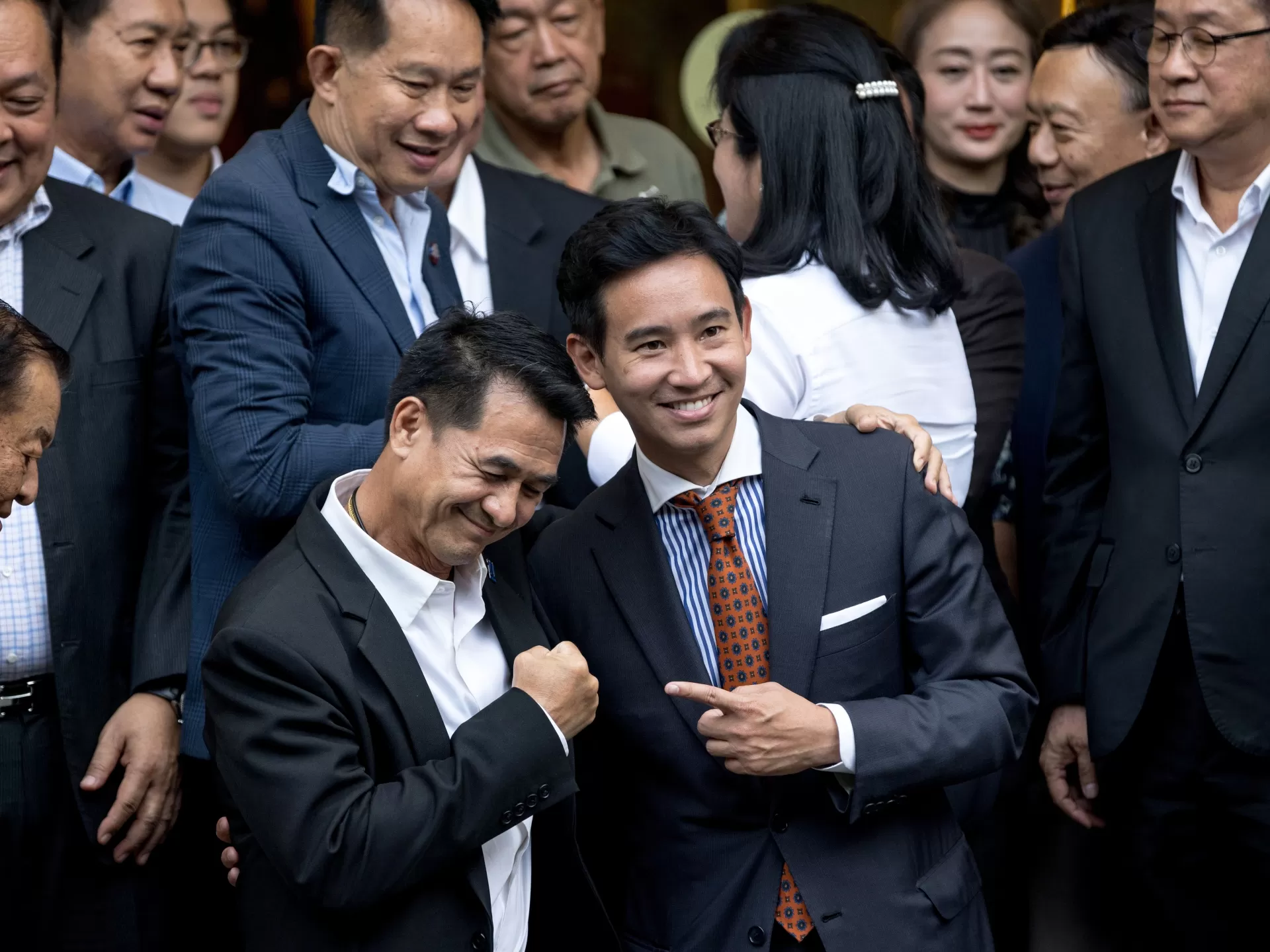Thailand’s new parliament has convened nearly two months after a progressive opposition party won a stunning election victory, but there is still no clear sign its leader will be able to become prime minister and end nine years of military-dominated rule.
The Move Forward Party’s unexpected election victory in May alarmed the ruling establishment, which regards it as a threat to the status quo and the monarchy. Some senators have already announced their opposition to party leader Pita Limjaroenrat, a 42-year-old Harvard-educated businessman.
The election results showed Move Forward’s progressive agenda resonated with a public weary of nine years of military-controlled rule under Prime Minister Prayuth Chan-ocha, who as army commander seized power in a 2014 coup and returned as prime minister after a 2019 general election.
But what made Move Forward popular with many voters was what alarmed royalist conservatives.
The party pledged to reform many powerful institutions, including the monarchy and the military, which retain power and influence under a constitution written during Prayuth’s administration.
Political transformation?
While the threats from Move Forward’s ideological foes are clear, what has been less expected are the tensions between it and the biggest partner in its coalition, the Pheu Thai Party.
Move Forward and Pheu Thai have been squabbling over which will get the post of speaker of the House of Representatives, which is supposed to be chosen by the parliament on Tuesday.
“The position of the House speaker is essential because he will determine the agenda of parliament, and so therefore the degree of political transformation,” said Tyrell Haberkorn, a Thai studies scholar at the University of Wisconsin.
The two parties announced a compromise after a meeting on Monday. The coalition will nominate Wan Muhamad Noor Matha, a veteran leader of the Prachachat Party, to be House speaker, and Move Forward and Pheu Thai will each have one deputy speaker.
Pita said the decision was reached to strengthen unity among the coalition’s allies to support his bid to be prime minister. Pita needs 376 votes to secure the post. He currently has 312 and will need 64 more votes from either rival parties or members of a conservative-leaning Senate appointed under military rule.
Agenda setter
Attachak Sattayanurak, a professor of history at Chiang Mai University in northern Thailand, suggested the apparent distrust between the two parties is potentially the biggest threat to Pita’s possible prime ministership.
Pheu Thai leaders, almost as a matter of pride, could not be seen as ceding too much to their Move Forward partner, he said.
“The feelings of people in the Pheu Thai Party, that it used to be a heavyweight that had won many elections and was able to be an agenda setter” drove many to insist that Move Forward make the speaker’s post part of Pheu Thai’s share of the pie, he said.
However, if Pheu Thai fails to show an unbreakable bond with Move Forward, it “reduces the power of the group that calls itself a democracy bloc” and gives the senators and their conservative allies “more grounds not to choose Pita”, Attachak said.
Aside from Move Forward’s problems with the Senate and Pheu Thai, there are serious fears that Pita and his party will be blocked by legal challenges, a fate that brought down previous parties that ran afoul of the conservative establishment.
On Monday, King Maha Vajiralongkorn, accompanied by his wife Queen Suthida, reminded the rows of white-uniformed lawmakers of their duty to represent the people of Thailand.
“The progress of the nation will be up to your intellectual ability and your honesty,” he said in brief prepared remarks. “If everyone realises this, the work will achieve success smoothly.”
